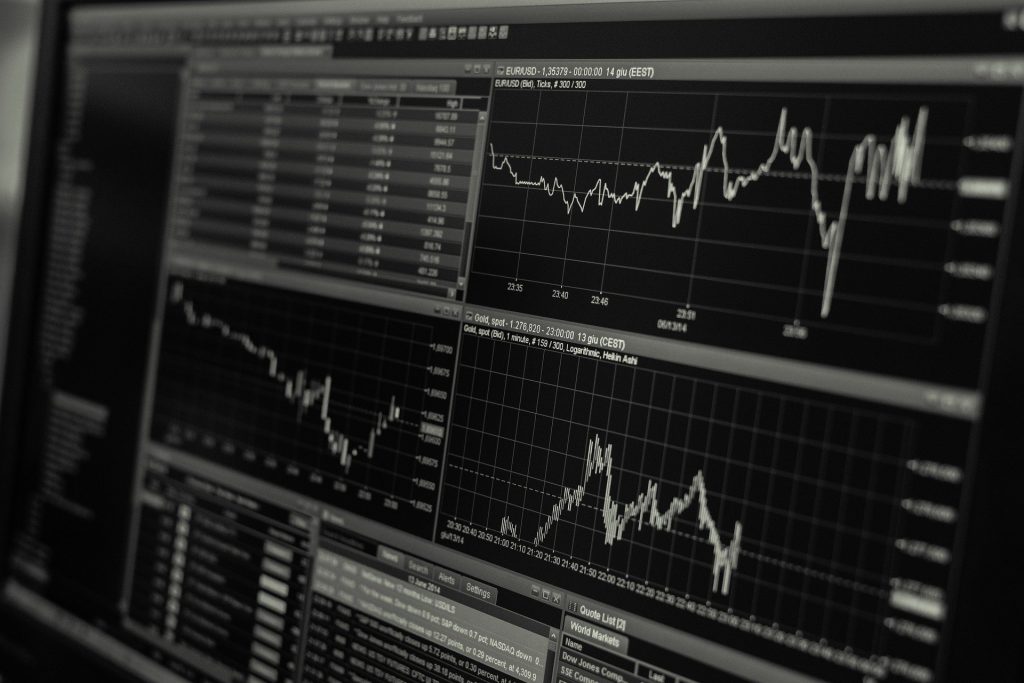Bear markets have distinctive phases that correspond to investors’ emotions and psychology.
Over the long term, share prices are driven by growth from its underlying companies.
However, in the short-term, share prices can be affected by humans’ hopes, fears and desires.
In sum, it is hard to tell where the market is headed in the short term.
However, we can try to figure out where we are to better understand what to expect.
Let’s take a look into the three distinct phases of a typical bear market and then try to assess where we are.
Note: the phases are not an exact science, as the news on Covid-19 is still very fluid.
The denial phase
The first phase of a bear market is known as the “denial” phase.
This phase is characterised by bad news that first breaks out but is ignored by the masses as the good times are still rolling.
As no one wants to leave the party early as stock prices continue hitting new all-time highs, the bad news gets shoved aside and blissfully ignored.
During the Great Recession back in 2008, there were signs of bad news coming from the subprime housing market as early as 2007.
But, the party continued until late-2007 and even into mid-2008.
For the current Covid-19 virus outbreak, there was persistent denial in January and February that the virus could be so disruptive and cause economies so much pain.
Fear and concern
The second phase of the bear market is where investors suddenly wake up to the increasing flow of bad news.
Sentiment then makes a 180 degree turn from optimism, to fear, concern and pessimism.
The bad news is now amplified, while good news (if any) is ignored.
The masses start heading for the exits as panic takes over, sending stock prices plunging in a stampede of sell orders.
During the Great Recession, this phase was characterised by the bankruptcy of Lehman Brothers, once a vaunted financial institution.
The realisation that the entire financial system could collapse hit investors like a tsunami of bad news, resulting in waves of panicked selling.
Fast forward to today.
Covid-19 has spread unabated thus far and infected people from numerous countries, resulting in lockdowns, borders shutting down and stringent quarantine orders.
In the last few weeks, investors have woken up to the realisation that things are much worse than they seemed.
With that, the pendulum has swung from optimism to extreme pessimism.
Capitulation
During the final phase of capitulation, investors completely give up on the stock market and sell everything in earnest.
This phase is represented by revulsion and despair.
Stung by enormous paper losses on their stock holdings, some investors lock in their losses and exit the market entirely, swearing off investing.
Others may feel a sense of despair, an intense feeling that things will take years to improve and that share prices will remain permanently depressed.
The sense of despair is almost palpable and results in mass selling that pushes share prices below their long-term fundamental values.
Margin calls exacerbate the selling and the need to raise cash further depresses share prices in a vicious cycle.
The capitulation phase can be seen as the “point of maximum pessimism”.
Share prices are battered by a constant stream of bad news and there are hardly any sellers left.
This, in turn, sets the stage for the emergence of the next bull market.
Get Smart: So, where are we now?
If I had to make an intelligent guess, I would say that we are now somewhere between the “concern” phase and the “capitulation” phase.
People have just begun to realise how bad the situation is with Covid-19.
Many countries are taking drastic steps to contain the virus. At this point, we won’t know if or when they will be successful.
There is a growing realisation that things may get much worse before they get better.
Investors may wish to wait until they witness the capitulation phase before committing significantly more money into the market.
However, as no one’s timing can be perfect, it’s good to also slowly allocate money into strong companies.
In other words, pace your purchases.
Hopefully, this nasty virus episode blows over soon, and all of us can get back to our normal lives.
FREE special report: The Bear Market Survival Guide. If you’d like to learn how to survive this bear market, CLICK HERE to download our special free report.
Get more stock updates on our Facebook page or Telegram. Click here to like and follow us on Facebook and here for our Telegram group.





